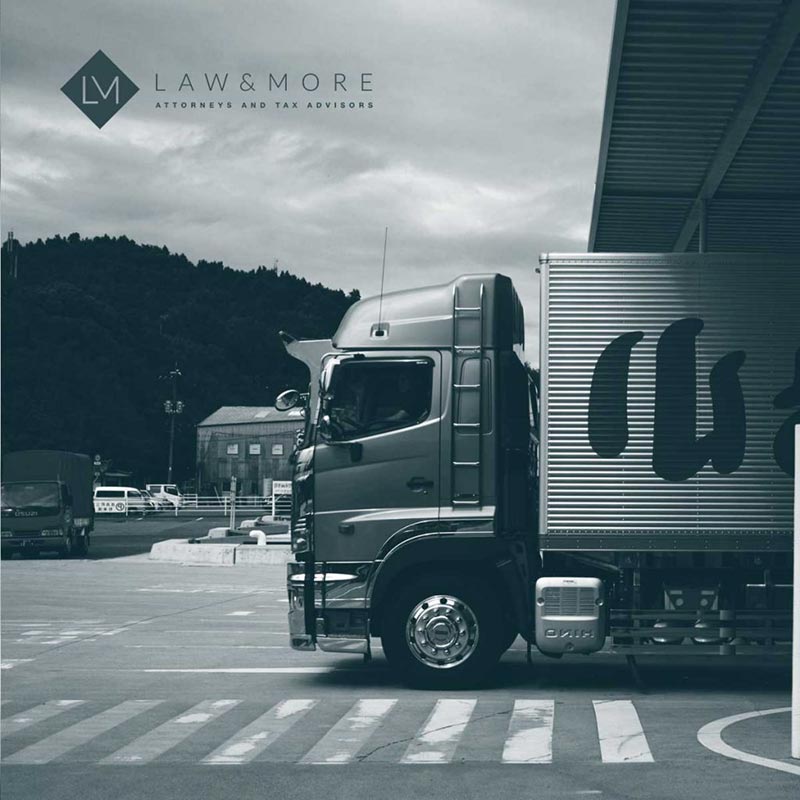Introduction
Anyone who wishes to establish a transport company, will have to be aware of the fact that this cannot be done overnight. Before starting a transport company, one will first have to face a generous amount of paperwork. For instance: every company that is engaged in the professional carriage of goods by road, i.e. every company that transports goods (by road) against payment and by third party order, needs a ‘Eurovergunning’ (Euro permit) in case the carriage takes place with vehicles with a loading capacity of more than 500 kg. Obtaining a Euro permit requires some effort. Which steps need to be taken? Read it here!
Permit
In order to obtain a Euro permit, the permit must be applied for at the NIWO (the Dutch National and International Road Transport Organization). As indicated in the introduction, the permit is required for national and international transport with vehicles with a loading capacity of more than 500 kg. A transport company with a license must have at least one vehicle, for which a license certificate must be issued. With a license certificate on board, the vehicle may transport goods within the EU (with a few exceptions). Outside of the EU other permits are necessary (for instance a CEMT permit or an additional ride authorization). The Euro permit is valid for a period of 5 years. After this period, the permit can be renewed. Depending on the type of transport (for instance transport of hazardous materials), it is possible that other permits are also necessary.
Requirements
There are four main requirements which need to be met before a permit can be issued:
- The company must have an actual establishment in the Netherlands, meaning an actual and permanent establishment. Moreover, and as already mentioned, there must be at least one vehicle.
- The company must be creditworthy, meaning that the company has a sufficient amount of financial means available to ensure its take-off and continuity. Specifically this means that the company capital (in the form of venture capital) must at least be 9.000 euro’s in case the company works with one vehicle. An additional amount of 5.000 euro’s should be added to this capital for each extra vehicle. As proof of creditworthiness, an (opening)balance, and possibly a statement of assets, should be submitted, as well as a statement of an accountant (RA or AA), a member of NOAB or a member of the registry of Accountants (‘Register Belastingadviseurs’). There are some specific requirements for this statement.
- Moreover, the person in charge of the transporting activities (the transport manager) must prove his competence by producing a recognized diploma ‘Ondernemer beroepsgoederenvervoer over de weg’ (freely translated: ‘Entrepreneur professional transport of goods by road’). This diploma takes some ‘rolling-up-your-sleeves’, as it can only be obtained by passing six exams organised by a specific branch of the CBR (the Dutch ‘Central Office for Driving Skills’). Not every transport manager has to acquire this diploma; there is a lower limit of one manager with a diploma. Furthermore, there are a number of additional requirements. The transport manager must for instance be a resident of the EU. The transport manager can be the director or the owner of the company, but this position can also be filled by an ‘external’ person (for instance an authorized signatory), as long as the NIWO can determine that the transport manager is permanently and actually leading the transporting activities and that there is a real connection with the company. In case of an ‘external’ person a ‘verklaring inbreng vakbekwaamheid’ (freely translated: ‘statement contribution of competence’) is needed.
- The fourth condition is that the company must be trustworthy. This can be shown by a ‘Verklaring Omtrent Gedrag (VOG) voor NP en/of RP’ (certificate of good behaviour for a natural person (NP) or legal entity (RP)). The VOG RP is needed in case of a legal entity in the form of a Dutch B.V., V.o.f. or partnership. The VOG NP is needed in case of a sole proprietorship and/or an external transport manager. In case of directors that are not living in the Netherlands and/or that are not in the possession of the Dutch nationality, a separate VOG NP needs to be obtained in the country of residence or nationality.
(Other) grounds for refusal
A Euro permit can be refused or withdrawn when this is advised by the Bureau Bibob. This can for instance be the case when there is a possibility that the permit will be used for criminal activities.
Application
The permit can be applied for through the digital office of the NIWO. A permit costs € 235,-. The license certificate costs € 28.35. Furthermore, a yearly levy of €23,70 is charged per license certificate.
Conclusion
In order to establish a transportation company in the Netherlands, a ‘Eurovergunning’ needs to be obtained. This permit can be issued when four requirements are met: there must be an actual establishment, the company must be creditworthy, the transport manager has to be in the possession of a diploma ‘Ondernemer beroepsgoederenvervoer over de weg’ and the company should be trustworthy. Apart from not meeting these requirements, a permit can be refused when there is a risk that the permit will be misused. The costs for an application are € 235,-. A license certificate costs € 28.35.
Source: www.niwo.nl
Contact
Should you have any further questions or comments after reading this article, feel free to contact mr. Maxim Hodak, attorney-at-law at Law & More via maxim.hodak@lawandmore.nl or mr. Tom Meevis, attorney-at-law at Law & More via tom.meevis@lawandmore.nl or call us on +31 40-3690680.
